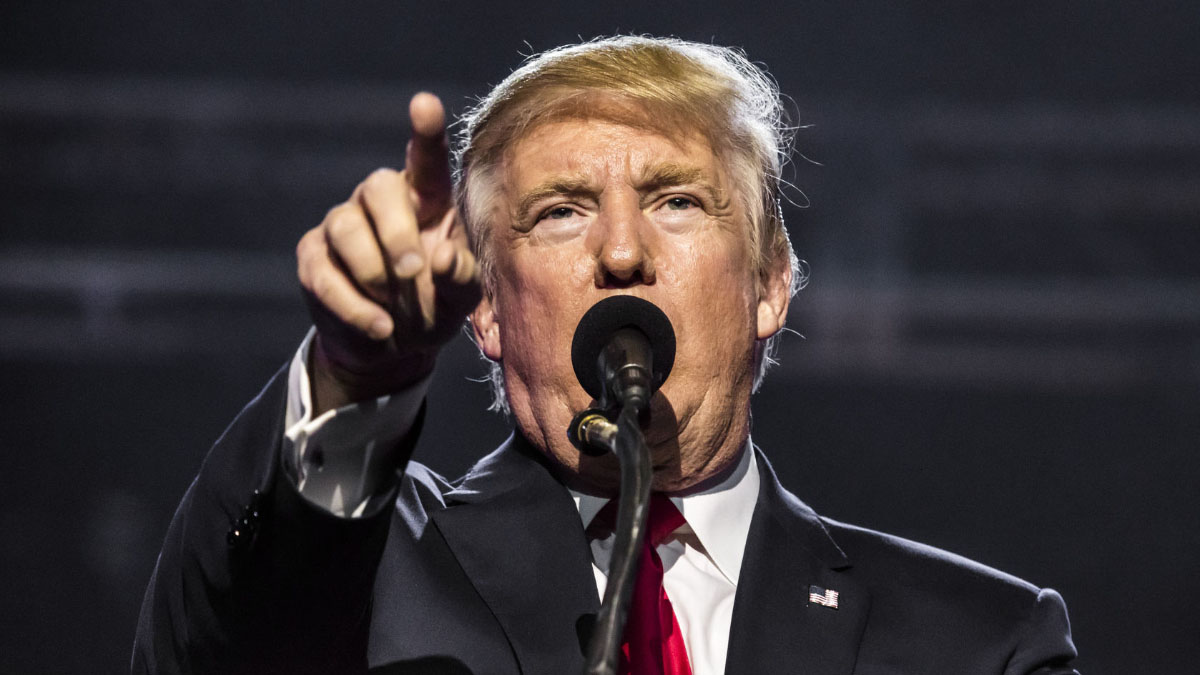For all his revolutionary talk on the campaign trail, Donald Trump, as presidents have before him, has been co-opted by the U.S. foreign policy establishment to run pretty much the same national security strategy as his predecessors. That is because new presidents, most of them former governors, have been elected on domestic issues and have little foreign policy experience when they take office (the only recent exception was George H. W. Bush), therefore relying on people that the establishment recommends from their political party. In the case of Trump—who had some good commonsense instincts in the campaign that promised a more a more restrained foreign policy—it is a shame that the interventionist generals he has around him have largely won the day over that laudable intuition.
Much to the alarm of establishment figures, Trump initially proved reluctant to accept the NATO alliance’s Article V pledge for the U.S. to defend rich European nations long after the Cold War was over. Even more horrifying to the elite, he agitated for East Asian allies to do more for their own defense, including possibly acquiring nuclear weapons. Trump has been reduced by the generals to merely taking pride that U.S. allies have agreed to pay a little more of the defense bill.
Yet even here, if the traditionally stingy allies cough up a little more and the United States tries to stay out of overseas quagmires, as Trump insinuated during the campaign, why does Trump’s plan call for a big increase in the defense budget. Instead defense spending could be reduced if allies do more and the United States drops its exorbitantly expensive role as policeman of the world. Furthermore, after long being the only federal department that couldn’t pass an audit, the bloated and wasteful Department of Defense finally may be getting serious about conducting one.
In certain instances, the United States could even rely on what the new strategy calls the “revisionist” powers—Russia and China—to ensure stability by policing regions close to them. For example, Russia could be allowed to police a modest sphere of influence in its “near abroad” in Eastern Europe, much as the United States polices its own sphere of influence in the entire Western Hemisphere. Although the American foreign policy elite likes to pretend that spheres of influence are “so yesterday,” this reasoning usually only applies for those of foreign countries, not that of the United States. And if the United States can’t live with a nuclear North Korea and deter it with the most powerful nuclear arsenal on the planet (which it can), as it did when radical Mao Zedong got nuclear weapons in the 1960s, then instead of attacking the North—as seems increasingly likely—why not give a wink and a nod to a surprise Chinese ground invasion of the Hermit Kingdom? A lightning ground invasion of North Korea is the only way to be sure all the North’s nuclear weapons are collected before they can be used. And China, North Korea’s ostensible ally with a common border, is the only country that could conduct a surprise attack on that nation. China could then install a friendly government in the North. However, the American foreign policy establishment would be appalled by the thought of either of these scenarios, because despite severe U.S. overextension abroad, in their view, the United States must remain the global hegemon.
Such American overextension is best illustrated by the United States currently accounting for 37 percent of the world’s military spending, yet only 22 percent of its economic power. If U.S. national security depends on a strong economy, which Trump correctly claims in the new strategy, a reduction in defense spending—in addition to entitlement reform, which Trump has rejected—would help with the humongous debt burden of $20.6 trillion that the U.S. government has already racked up and that the Republicans are ballooning by $1.45 trillion with their needless tax cut in a currently buoyant economy. If Republicans are unimpressed with current economic growth rates, they should remove the drag the current debt induces on them, instead of creating the sugar high of tax cuts that make the debt burden worse. For good reason, General Mike Mullen, former Chairman of the Joint Chiefs of Staff, cogently argued that the nation’s debt was the biggest national security issue facing the country, but Trump and congressional Republicans don’t seem to get the disconnect between Trump’s national security strategy and his economic policy.
Another contradiction in Trump’s strategy is that his “fair trade”—that is, veiled—economic protectionism will ultimately make the American economy, and therefore national security, weaker. In contrast, free trade and capital flows would ensure a healthier U.S. economy in the long term. Therefore, counterintuitively, long-term U.S. national security depends on reducing defense expenditures, entitlement spending, and debt—not cutting taxes until these difficult tasks are completed—and allowing free commerce and capital flows to make the economy stronger.

















